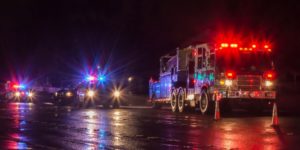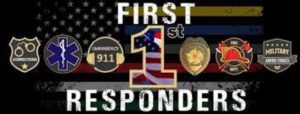 In Kowalski,1 the Court created ambiguity for first responders on the application of the Internal Revenue Code’s section 1192 meals exclusion, partially addressed the “convenience of the employer” issue,3 and called on Congress to provide more guidance.4 This blog post highlights (1) section 119’s problematic application to first responders and (2) the circuit split5 focusing on the “business premise” definition.
In Kowalski,1 the Court created ambiguity for first responders on the application of the Internal Revenue Code’s section 1192 meals exclusion, partially addressed the “convenience of the employer” issue,3 and called on Congress to provide more guidance.4 This blog post highlights (1) section 119’s problematic application to first responders and (2) the circuit split5 focusing on the “business premise” definition.
In Kowalski, an on-duty state trooper received a cash meal allowance during his meal break, followed by cash reimbursement.6 The Court held gross income includes cash meal allowance payments.7 Section 119 did not include cash reimbursements, only meals furnished by the employer,8 superseding the judicial “convenience of the employer” doctrine.9 The Court explained payments could be claimed based on the once-recognized doctrine;10 however, the codified topic under code section 119 was more persuasive.11 The issue remains because Kowalski only highlighted the issue for Congress.
 In Kowalski, the in-kind requirements were not met, so the Court did not address whether public restaurants constituted “business premises of the employer.” The Ninth Circuit, in Sibla, distinguished Kowalski and excluded mandatory payments into a firehouse mess fund from employees’ gross income.12 The Ninth Circuit defined a “business premise” using Treasury Regulations.13 The Third,14 Fifth,15 Eighth,16 and Tenth17 Circuits held business premises of the state highway department included the entire state, while the First18 and Fourth19 Circuits disagreed by defining it as not encompassing restaurants adjacent to state highways.
In Kowalski, the in-kind requirements were not met, so the Court did not address whether public restaurants constituted “business premises of the employer.” The Ninth Circuit, in Sibla, distinguished Kowalski and excluded mandatory payments into a firehouse mess fund from employees’ gross income.12 The Ninth Circuit defined a “business premise” using Treasury Regulations.13 The Third,14 Fifth,15 Eighth,16 and Tenth17 Circuits held business premises of the state highway department included the entire state, while the First18 and Fourth19 Circuits disagreed by defining it as not encompassing restaurants adjacent to state highways.
The Sixth Circuit in Anderson defined business premises to include places where employees perform some significant portion of their duties, appearing to agree with the Fifth, Eighth, and Tenth Circuits.20 The First Circuit in Baertschi disagreed with Anderson reasoning restaurants were not a place where the employee performs any significant portions of his duties; they were “off duty.”21 Despite section 119’s uncertainness application, a section 162 deduction may still be available for significant employer-imposed restrictions limiting how first responders eat their meals on duty.22
 Whether meals in public restaurants qualify as furnished “on the employer’s business premises” remains unresolved. Congress’s definition of “business premise” must cover meals for on-duty first responders, or the unambiguity will cause a shortfall like in Anderson. Congressional action is needed to make section 119 exclusions available to first responders, resolve the circuit split, and offer guidance for our first responders.
Whether meals in public restaurants qualify as furnished “on the employer’s business premises” remains unresolved. Congress’s definition of “business premise” must cover meals for on-duty first responders, or the unambiguity will cause a shortfall like in Anderson. Congressional action is needed to make section 119 exclusions available to first responders, resolve the circuit split, and offer guidance for our first responders.



 In
In  In Kowalski, the in-kind requirements were not met, so the Court did not address whether public restaurants constituted “business premises of the employer.” The Ninth Circuit, in Sibla, distinguished Kowalski and excluded mandatory payments into a firehouse mess fund from employees’ gross income.
In Kowalski, the in-kind requirements were not met, so the Court did not address whether public restaurants constituted “business premises of the employer.” The Ninth Circuit, in Sibla, distinguished Kowalski and excluded mandatory payments into a firehouse mess fund from employees’ gross income. Whether meals in public restaurants qualify as furnished “on the employer’s business premises” remains unresolved. Congress’s definition of “business premise” must cover meals for on-duty first responders, or the unambiguity will cause a shortfall like in Anderson. Congressional action is needed to make section 119 exclusions available to first responders, resolve the circuit split, and offer guidance for our first responders.
Whether meals in public restaurants qualify as furnished “on the employer’s business premises” remains unresolved. Congress’s definition of “business premise” must cover meals for on-duty first responders, or the unambiguity will cause a shortfall like in Anderson. Congressional action is needed to make section 119 exclusions available to first responders, resolve the circuit split, and offer guidance for our first responders.